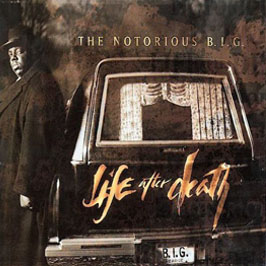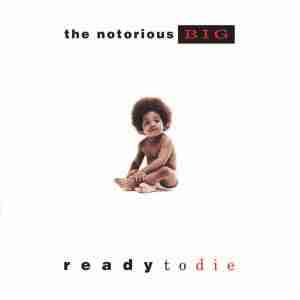Biggie Smalls is the illest


I'm eleven years old. Complimentary AA headphones cling to my head, tangled amongst a matted sea of pale blond hair. A knotted black wire winds its way towards my hip pocket, ending at the source of my musical education. The bulky Walkman facilities the once blank tape, now filled with Snoop Dog and Notorious B.I.G.
Am I in Brooklyn, N. Hollywood, Detroit? No, I'm in Orange County watering a neighbor's plants, while they are on vacation. I am an alien to crack deals, guns and weed. Although I know each one's function, my mind paints a strange scene imagining the associated lifestyle. Listening to the music, I have no dream of replicating the actions of Snoop or Biggie. While their tales of murder, sex and drugs have a glorified air, the music's auotobiographical perspective intrigues me most. My life and the lives presented through my headphones are at polar opposites. I might have found more in common with a penpal from Korea, but I enjoyed my bootleg cassette relationship.
As with any great story, there is an element of the forbidden. Gangster Rap wasn't quite on the corriculum at my house, which meant my tapes were unmarked and my headphones held close. How would I explain myself if caught? What is ok about degrading women and seeking vengance with a bullet? From the vantage point of twelve years, I'd say my fascination spawned from how Ready to Die and Doggystyle opened my eyes to some of life's harsh realities. The albums allowed me to communicate with the people society forgot. The resulting music is a reaction to the world they exist in. People always say they admire country music because it tells a personal story. Hip-hop is based on this same principle; however, this fact is brushed aside, because the public doesn't want to hear the stories rapper have to tell.
The reason for this post is quite simple: to show people the brilliance of Biggie Smalls. Notorious wrote two albums in three years, consolidating the human experience into Ready To Die and Life After Death. The former LP starts at Biggie's birth, and journeys until his suicide, while the latter follows a pseudo life after his death. The two LPs even run seamless between each other. After completed his second album Notorious BIG died. It sounds like a cliche Hollywood plot, but is his true legacy. Like no other artist I know, Notorious BIG created a single masterwork out of his career and life. The work of art is the entire experience.
With a four year gap between listens, I picked up both albums a few weeks ago, and was pleasantly surpirsed that every song passed the test of time. Ready To Die remains my favorite of the two. The tracks are raw and unchecked, and the album's narrative is ambitious. Life After Death shows a more confident Biggie, both lyrically and in production. The sound is much cleaner on this album, and the narrative focuses on the struggles of being on top.
[mp3] Notorious BIG - Gimme The Loot
[mp3] Notorious BIG - Somebody's Gotta Die
If you think hip hop is a waste of time, buy these albums.




4 Comments:
Great post...I'm with you on Ready to Die being the masterpiece...it has so much less filler and doesn't have the Biggie/R Kelly abortion otherwise known as "Fucking You Tonight".
Same experience here - being a young white male listening to hip hop. I prefer Ready to Die because every song is just a classic.
Wicked post. My first experiences of hip hop are similar (though in surburban England) and discovering Doggystyle and Jay-Z.
word up ,juicy ,such an influential song.thats another classic
Post a Comment
<< Home